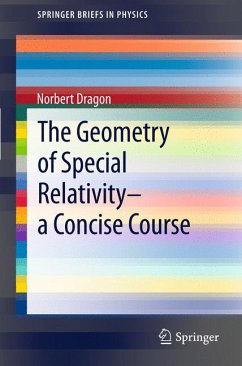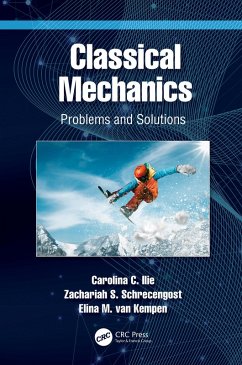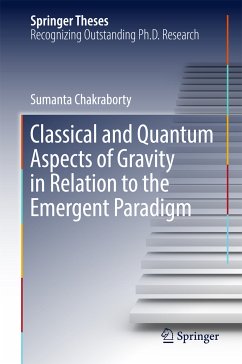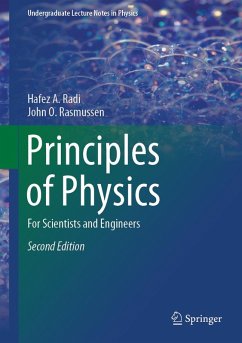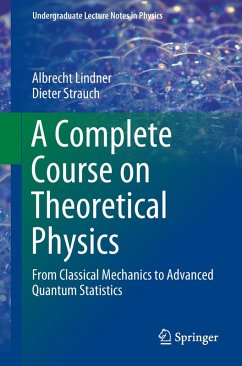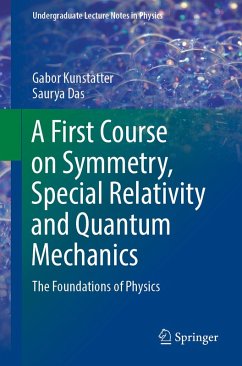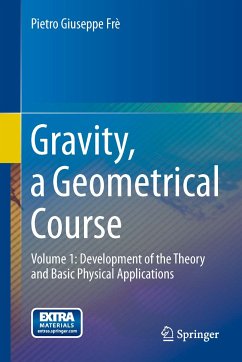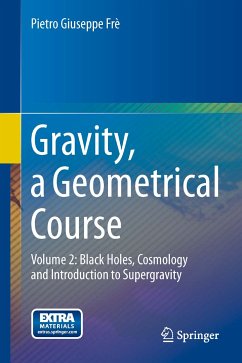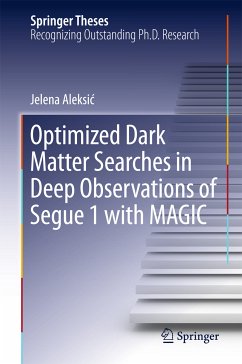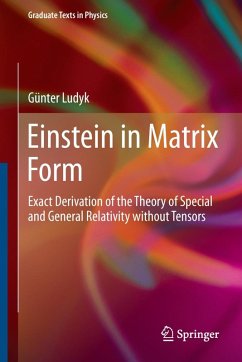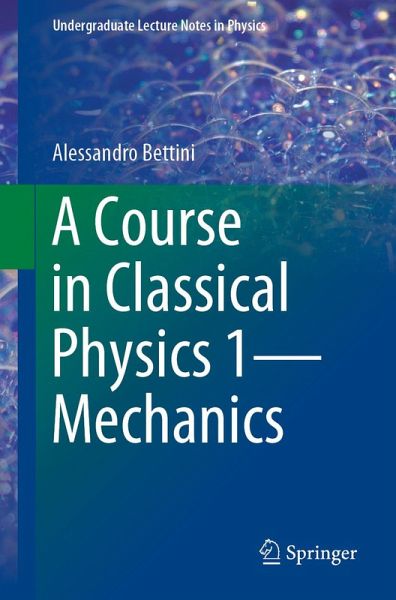
A Course in Classical Physics 1-Mechanics (eBook, PDF)
Versandkostenfrei!
Sofort per Download lieferbar
52,95 €
inkl. MwSt.
Weitere Ausgaben:

PAYBACK Punkte
26 °P sammeln!
This first volume covers the mechanics of point particles, gravitation, extended systems (starting from the two-body system), the basic concepts of relativistic mechanics and the mechanics of rigid bodies and fluids.It is part of a four-volume textbook, which covers electromagnetism, mechanics, fluids and thermodynamics, and waves and light, and is designed to reflect the typical syllabus during the first two years of a calculus-based university physics program.Throughout all four volumes, particular attention is paid to in-depth clarification of conceptual aspects, and to this end the histori...
This first volume covers the mechanics of point particles, gravitation, extended systems (starting from the two-body system), the basic concepts of relativistic mechanics and the mechanics of rigid bodies and fluids.
It is part of a four-volume textbook, which covers electromagnetism, mechanics, fluids and thermodynamics, and waves and light, and is designed to reflect the typical syllabus during the first two years of a calculus-based university physics program.
Throughout all four volumes, particular attention is paid to in-depth clarification of conceptual aspects, and to this end the historical roots of the principal concepts are traced. Writings by the founders of classical mechanics, G. Galilei and I. Newton, are reproduced, encouraging students to consult them. Emphasis is also consistently placed on the experimental basis of the concepts, highlighting the experimental nature of physics. Whenever feasible at the elementary level, concepts relevant to more advanced courses in modern physics are included. Each chapter begins with an introduction that briefly describes the subjects to be discussed and ends with a summary of the main results. A number of "Questions" are included to help readers check their level of understanding.
The textbook offers an ideal resource for physics students, lecturers and, last but not least, all those seeking a deeper understanding of the experimental basics of physics.
It is part of a four-volume textbook, which covers electromagnetism, mechanics, fluids and thermodynamics, and waves and light, and is designed to reflect the typical syllabus during the first two years of a calculus-based university physics program.
Throughout all four volumes, particular attention is paid to in-depth clarification of conceptual aspects, and to this end the historical roots of the principal concepts are traced. Writings by the founders of classical mechanics, G. Galilei and I. Newton, are reproduced, encouraging students to consult them. Emphasis is also consistently placed on the experimental basis of the concepts, highlighting the experimental nature of physics. Whenever feasible at the elementary level, concepts relevant to more advanced courses in modern physics are included. Each chapter begins with an introduction that briefly describes the subjects to be discussed and ends with a summary of the main results. A number of "Questions" are included to help readers check their level of understanding.
The textbook offers an ideal resource for physics students, lecturers and, last but not least, all those seeking a deeper understanding of the experimental basics of physics.
Dieser Download kann aus rechtlichen Gründen nur mit Rechnungsadresse in A, B, BG, CY, CZ, D, DK, EW, E, FIN, F, GR, HR, H, IRL, I, LT, L, LR, M, NL, PL, P, R, S, SLO, SK ausgeliefert werden.



